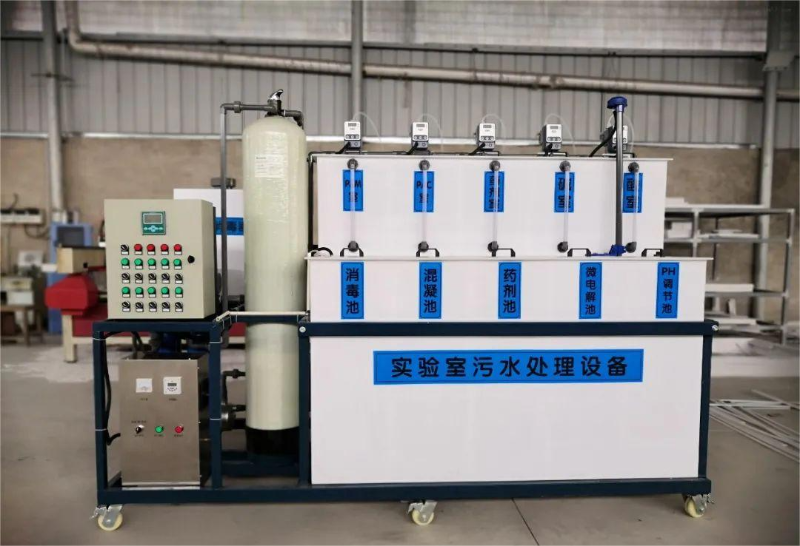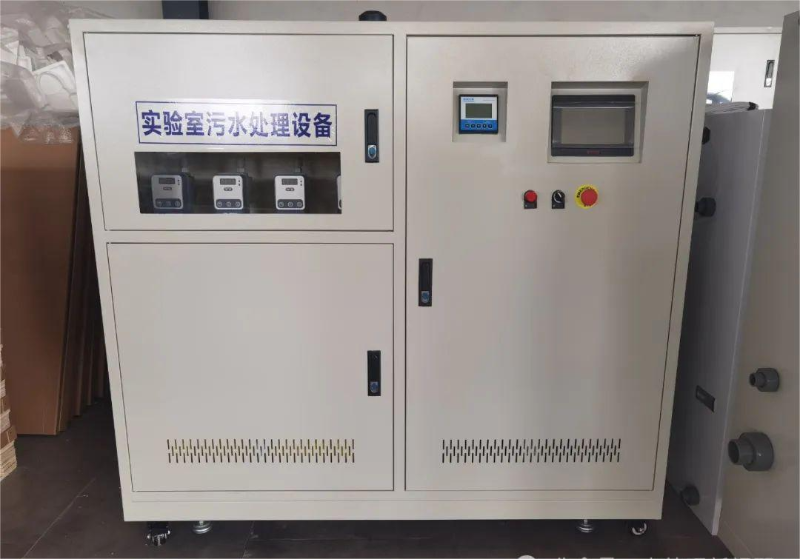(+86)0532-88988868
In the process of building a new laboratory, choosing the right wastewater treatment equipment is an important step to ensure the normal operation of the laboratory and environmental protection.
This article will elaborate on how to select laboratory wastewater treatment equipment for new laboratories to ensure that wastewater is properly treated, meet environmental requirements, and improve the operational efficiency of the laboratory.

First of all, we need to clarify the type and characteristics of laboratory wastewater. There are many types of laboratory wastewater, including organic wastewater, inorganic wastewater, heavy metal wastewater, etc. Different types of wastewater require different treatment processes and equipment. Therefore, when choosing wastewater treatment equipment, it is necessary to fully understand the composition and concentration of laboratory wastewater in order to select the appropriate treatment process and equipment.
Second, consider the processing power of the device. The size of the treatment capacity directly determines whether the equipment can meet the needs of laboratory wastewater treatment. When selecting equipment, the required capacity should be determined based on the size of the laboratory and the amount of wastewater generated. In general, larger laboratories need to choose equipment with higher capacity to ensure that wastewater can be treated in a timely manner.
The stability and reliability of the equipment is also an important factor to consider when choosing wastewater treatment equipment. The normal operation of the laboratory and scientific research work need to maintain continuity and stability, so wastewater treatment equipment should also have a high degree of stability and reliability. When selecting equipment, we should pay attention to the operational stability and service life of the equipment to ensure that the equipment can operate stably for a long time and reduce failure and maintenance costs.
In addition, ease of operation and maintainability are also factors to consider when selecting wastewater treatment equipment. The operation of the equipment should be simple and easy to use, and it should be convenient for laboratory staff to use. At the same time, the maintenance of the equipment should also be convenient and fast to reduce maintenance costs and improve the efficiency of the use of equipment.

Laboratory wastewater treatment equipment
Environmental certifications and policy requirements are also factors that cannot be ignored when choosing wastewater treatment equipment. When choosing equipment, you should pay attention to whether the equipment meets the requirements of national and local environmental protection regulations and whether it has relevant environmental certifications. This helps to ensure that the equipment treats wastewater to environmental standards and avoids environmental pollution.
When comparing offers and services from different suppliers, it is necessary to consider the price-performance ratio of the equipment. There may be differences in the quotations of different suppliers, and in addition to the cost of the equipment itself, it is also necessary to consider the cost of later maintenance, spare parts replacement, etc. When choosing a supplier, you should weigh the offer and the quality of your service to choose a cost-effective supplier.
Considering the complexity and variability of laboratory wastewater, it is recommended to consider the scalability and flexibility of wastewater treatment equipment when selecting it. This includes scalable capacity and adaptable treatment processes to accommodate changes in laboratory wastewater treatment needs.
In summary, when selecting wastewater treatment equipment, new laboratories need to comprehensively consider factors such as wastewater type, treatment capacity, stability, reliability, ease of operation, maintainability, environmental certification and policy requirements, as well as supplier quotations and services. By comprehensively considering these factors, we can select wastewater treatment equipment that not only meets the actual needs of the laboratory, but also meets the environmental protection requirements, so as to ensure the normal operation of the laboratory and environmental protection.


